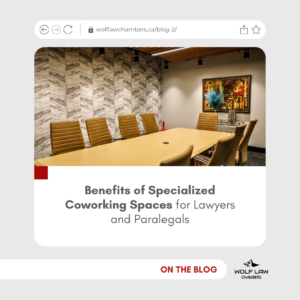Productivity
Top Productivity Apps for Paralegals in 2025
Paralegals are the backbone of legal operations, handling research, drafting, and case management under tight deadlines. Staying organized and efficient is crucial in this fast-paced field. Here are the top productivity apps every paralegal should consider in 2025:
1. Clio
Clio remains a leader in legal case management software. Its ability to streamline document management, case tracking, and client communication makes it a vital tool for legal teams.
2. Notion
Notion’s customizable workspace is perfect for creating to-do lists, tracking projects, and storing case-related notes. Its collaborative features also make team coordination seamless.
3. Trello
For visual task management, Trello’s boards and cards allow you to prioritize and monitor deadlines effectively. It’s great for managing multiple cases simultaneously.
4. CaseFox
Designed specifically for legal professionals, CaseFox offers time tracking, billing, and task management. It’s intuitive and helps save valuable time on administrative tasks.
5. Grammarly
Drafting accurate legal documents is critical. Grammarly ensures your writing is clear, error-free, and professional, making it indispensable for reports, contracts, and emails.
6. Adobe Acrobat
Handling legal documents often involves working with PDFs. Adobe Acrobat’s advanced editing and signing capabilities simplify the process, keeping you productive and organized.
7. Otter.ai
Transcription tasks can eat up a lot of time. Otter.ai converts spoken words into text in real-time, making it easier to document client meetings or interviews.
Why These Apps?
In 2025, efficiency and adaptability are key. These apps help paralegals reduce manual effort, minimize errors, and maintain organization in a demanding profession. By leveraging technology, you can focus on the work that matters most.
10 Must-Have Apps for Lawyers to Streamline Their Practice
In today’s fast-paced legal environment, staying organized, efficient, and connected is key. The right apps can make all the difference. Here are 10 must-have apps that every lawyer should consider:
- Clio Manage
A leading practice management tool, Clio helps track cases, manage billing, and streamline client communications—all in one place. - Microsoft OneNote
Perfect for jotting down case notes or brainstorming, OneNote syncs across devices, keeping your ideas accessible anytime. - Evernote
An organizational powerhouse, Evernote is great for storing research, legal memos, and important documents securely. - Fastcase
A go-to for legal research, Fastcase offers quick access to statutes, case law, and more, right from your phone. - Zoom
For virtual meetings and court appearances, Zoom ensures seamless connectivity with clients and colleagues. - Slack
Facilitate team communication and collaboration with Slack’s channels, messaging, and file-sharing capabilities. - Google Workspace
From managing your calendar to sharing case files, Google’s suite of tools keeps your workflow smooth and efficient. - Notion
An all-in-one productivity app for managing tasks, deadlines, and case timelines. - DocuSign
Simplify contract management with this app that allows secure electronic signatures on legal documents. - TrialPad
A courtroom presentation tool that helps you organize evidence, exhibits, and transcripts for powerful case presentations.
Embracing technology in your practice can save time, reduce stress, and enhance client service. Which app will you try first?
#LegalTech #LawyerApps #ProductivityTools #LawPractice
The Future of Coworking Spaces in the Legal Sector
Coworking spaces have revolutionized industries, and the legal sector is no exception. As remote work and flexible office arrangements grow, legal professionals are embracing coworking spaces for their unique benefits.
Collaboration Beyond Firms
Traditional law offices can be isolating, but coworking spaces foster interaction across disciplines. Lawyers can network with tech experts, financial advisors, and startups, enabling cross-industry collaboration. This ecosystem sparks innovation in client solutions and legal tech advancements.
Cost-Efficient and Scalable
For solo practitioners and small firms, coworking spaces offer a cost-effective alternative to maintaining a private office. Flexible leases, shared amenities, and pay-as-you-go models reduce overhead while offering scalability as teams grow.
Tech-Ready Environments
Coworking spaces often come equipped with cutting-edge technology.
Adapting to Client Expectations
Clients increasingly value convenience and modernity. Meeting rooms in coworking spaces provide a professional yet accessible setting that appeals to tech-savvy and younger clientele.
As the legal profession adapts to changing work trends, coworking spaces are poised to play a pivotal role in its transformation. They offer a balance of flexibility, innovation, and professionalism, aligning perfectly with the future of legal work.
#LegalTech #CoworkingSpaces #FutureOfWork
How to Choose the Right Coworking Space for Your Legal Practice.
As a legal professional, your choice of workspace plays a crucial role in building trust, maintaining confidentiality, and growing your practice. Here’s how to choose the perfect coworking space for your needs:
1. Evaluate Location
Choose a space in a professional neighborhood that’s easily accessible for your clients and provides proximity to courthouses or other legal hubs.
2. Consider Professional Amenities
A good coworking space for legal professionals should offer essential amenities like:
- On-demand meeting rooms for client consultations.
- Printing, scanning, and storage options for legal documents.
- Reception services to create a polished first impression.
3. Network Opportunities
Some coworking spaces host networking events or house professionals from complementary fields, such as finance or real estate, which could generate referrals for your practice.
4. Test the Culture
Ensure the environment aligns with your professionalism. Visit the space, observe its vibe, and assess whether it supports focused, high-quality work.
Choosing the right coworking space isn’t just about functionality; it’s about finding a place that supports the credibility and efficiency of your practice. Take your time, weigh your options, and invest in a space that sets you up for success.
Benefits of Specialized Coworking Spaces for Lawyers and Paralegals
As the legal profession evolves, specialized coworking spaces are gaining traction as a valuable resource for lawyers and paralegals. Unlike traditional offices or generic coworking hubs, these tailored environments offer unique benefits that address the specific needs of legal professionals.
1. Professional Atmosphere
Specialized coworking spaces cater to the professional standards of the legal industry. They provide private offices, meeting rooms, and settings that exude credibility—ideal for client consultations and sensitive discussions.
2. Cost-Effective Solutions
For solo practitioners and small law firms, renting a full-fledged office can be costly. Coworking spaces offer flexible memberships, enabling legal professionals to access high-end facilities without the financial burden of long-term leases.
3. Access to Legal Resources
Many specialized spaces provide access to tools like legal research databases, court filing assistance, and even notary services. These resources streamline day-to-day tasks, allowing teams to focus on casework.
4. Networking Opportunities
Sharing a workspace with other legal professionals fosters collaboration and networking. Whether it’s exchanging insights or referring clients, the connections formed in these environments can lead to valuable partnerships.
5. Enhanced Productivity
Designed with the legal workflow in mind, these spaces minimize distractions and support focused work. Amenities such as ergonomic furniture, high-speed internet, and secure file storage further enhance efficiency.
Specialized coworking spaces are more than just a trend—they’re a smart solution for modern legal professionals seeking flexibility, professionalism, and community. If you’re a lawyer or paralegal looking to elevate your practice, consider exploring these tailored spaces to meet your needs.
How Coworking Spaces Foster Collaboration Across Legal Areas of Practice
Coworking spaces are transforming the way professionals across various industries collaborate, and the legal field is no exception. Traditionally, law firms have been separate, hierarchical entities, often operating in silos. However, coworking spaces are encouraging lawyers from different practice areas to connect, share knowledge, and collaborate on projects.
One of the primary advantages of coworking spaces is the diverse community they bring together. Legal professionals from corporate law, intellectual property, criminal defense, and other specialties work side by side, creating opportunities for cross-disciplinary collaboration. By networking in a casual, open environment, lawyers can exchange ideas, seek advice, and even partner on cases that require expertise from multiple legal fields.
These shared spaces also help break down traditional barriers that can limit collaboration. Many smaller law firms or solo practitioners don’t have the resources to establish large office networks, but coworking spaces provide affordable, flexible environments where legal professionals can interact with colleagues they might not have met otherwise. Whether through informal conversations in the kitchen or during organized networking events, the physical proximity sparks connections that benefit the legal community.
Moreover, coworking spaces often host workshops, seminars, and panel discussions on various legal topics, providing an additional avenue for collaboration. These events allow legal professionals to stay updated on trends, enhance their skill sets, and collaborate on shared interests.
In conclusion, coworking spaces are more than just shared offices. They are vibrant hubs that encourage collaboration across different legal areas, leading to innovative solutions and more effective legal practices. By fostering a sense of community and shared knowledge, these spaces are helping reshape the future of legal work.
Why Coworking Spaces Are a Game-Changer for Legal Professionals
In the fast-paced world of law, legal professionals are constantly seeking ways to stay ahead of the curve. As client demands evolve and business landscapes shift, one solution that is making waves in the legal field is coworking spaces.
Coworking spaces offer a flexible and cost-effective alternative to traditional office environments, and for legal professionals, they bring unique advantages. Here’s why coworking spaces are becoming a game-changer for lawyers, paralegals, and legal consultants:
1. Flexibility and Cost Efficiency Law firms, especially small and solo practices, often face the challenge of high office rent and overhead costs. Coworking spaces provide fully equipped offices without the commitment of long-term leases, allowing legal professionals to scale as needed.
2. Networking Opportunities Working alongside professionals from different industries creates a dynamic environment. Legal professionals can tap into a valuable network of potential clients, collaborators, and referral partners, which could be hard to access in a traditional office setting.
3. Professional Amenities Coworking spaces are designed with productivity in mind, offering everything from high-speed internet to meeting rooms and even virtual assistants. This means that legal professionals can have access to top-notch facilities without the overhead of maintaining an office.
4. Work-Life Balance Many coworking spaces offer flexible hours and the ability to work from various locations. This can help legal professionals maintain a better work-life balance while staying productive.
As the legal industry continues to adapt to new technologies and work habits, coworking spaces provide an innovative solution to the traditional office model, offering flexibility, networking, and professional support that can help legal professionals thrive.
Building Client Trust in a Coworking Environment
In a coworking environment, trust is the foundation of successful client relationships. For legal professionals such as lawyers and paralegals operating in shared spaces, building trust is not just beneficial but essential to foster a sense of credibility and loyalty. Here’s how you can strengthen trust with your clients in a coworking setup:
1. Consistent Communication
Maintain open and transparent communication with your clients. Regular updates on case progress, prompt responses to inquiries, and clarity in legal advice create a strong impression of reliability. Whether through emails, scheduled consultations, or shared platforms, ensure your clients feel heard and informed.
2. Deliver on Promises
Reliability is key. If you commit to deadlines or specific case milestones, ensure you meet them. Under-promising and over-delivering can further enhance your credibility and establish a reputation for professionalism and excellence.
3. Leverage the Community
Coworking spaces offer a unique opportunity to connect clients with other professionals, including those in complementary fields such as finance or real estate. By introducing your clients to relevant resources or collaborators within the space, you demonstrate value beyond the immediate legal relationship, enhancing their trust in your network and capabilities.
4. Personalized Interactions
Take the time to understand your clients’ unique legal needs and preferences. Tailoring your approach to address their specific concerns shows dedication and builds stronger emotional connections.
5. Foster Transparency
Be honest about legal processes, potential outcomes, and any challenges you may face. Clients value authenticity, and addressing concerns proactively fosters a deeper sense of trust and confidence in your expertise.
In the dynamic world of coworking, trust is built over time through consistent actions and genuine connections. By prioritizing communication, reliability, and community, you not only enhance client relationships but also contribute to a thriving coworking ecosystem for legal professionals.
How Paralegals Can Maximize Efficiency in Shared Workspaces
The shift to shared workspaces has brought flexibility and collaboration opportunities to the legal profession, but it also presents unique challenges for paralegals. Staying efficient in this dynamic environment requires strategic planning and leveraging available tools.
- Organize Your Workflow: Start your day by prioritizing tasks. Use project management tools like Trello or Asana to track deadlines, case details, and assignments. This ensures you stay on top of your workload, even in a bustling shared office.
- Leverage Technology: Equip yourself with digital tools to streamline legal tasks. Cloud-based document management systems like Clio or MyCase enable you to access files securely from anywhere in the workspace. Pair this with noise-canceling headphones to maintain focus in open areas.
- Communicate Effectively: Shared workspaces thrive on collaboration, but interruptions can derail productivity. Establish clear communication protocols with your team. Utilize messaging apps like Slack for quick queries and schedule regular check-ins to discuss case progress.
- Create Boundaries: While flexibility is a perk, set boundaries to protect your time. Reserve quiet zones or book private meeting rooms for concentrated work, especially when handling sensitive documents or client calls.
- Network Strategically: Shared spaces often bring together professionals from diverse fields. Use this as an opportunity to expand your network, gain insights, and build relationships that could benefit your legal career.
Adapting to shared workspaces is a skill paralegals can master with the right approach. By staying organized, embracing technology, and fostering effective communication, you can maximize efficiency while thriving in a collaborative environment.
Time Management Tips for Lawyers in Coworking Spaces
For lawyers balancing casework, client meetings, and court schedules, effective time management is non-negotiable. Operating out of a coworking space adds another layer of complexity, with its unique distractions and opportunities. Here are some practical tips to help lawyers make the most of their time:
- Leverage Private Spaces Most coworking spaces offer private rooms or phone booths. Schedule these for client calls or focused work to minimize distractions and maintain confidentiality.
- Utilize Scheduling Tools Platforms like Calendly or Google Calendar are great for managing client appointments and syncing team schedules. Use time-blocking techniques to dedicate slots for research, writing, and client interactions.
- Set Boundaries Coworking spaces can be social hubs. Politely set boundaries with other members during your peak productivity hours to avoid unnecessary interruptions.
- Take Advantage of Amenities Many coworking spaces provide services like printing, scanning, and legal databases. Familiarize yourself with these amenities to streamline your workflow and save time.
- Network Strategically Networking can be a valuable use of time when done intentionally. Participate in events or connect with professionals whose expertise complements your legal practice.
- Embrace Technology Use cloud-based legal software for case management and document sharing. These tools allow you to work seamlessly between the coworking space, court, and home.
- Take Breaks Regular breaks are essential to stay sharp. Coworking spaces often have lounges or quiet zones—make use of them to recharge.
By implementing these strategies, lawyers can maximize their productivity and thrive in the dynamic environment of coworking spaces.










